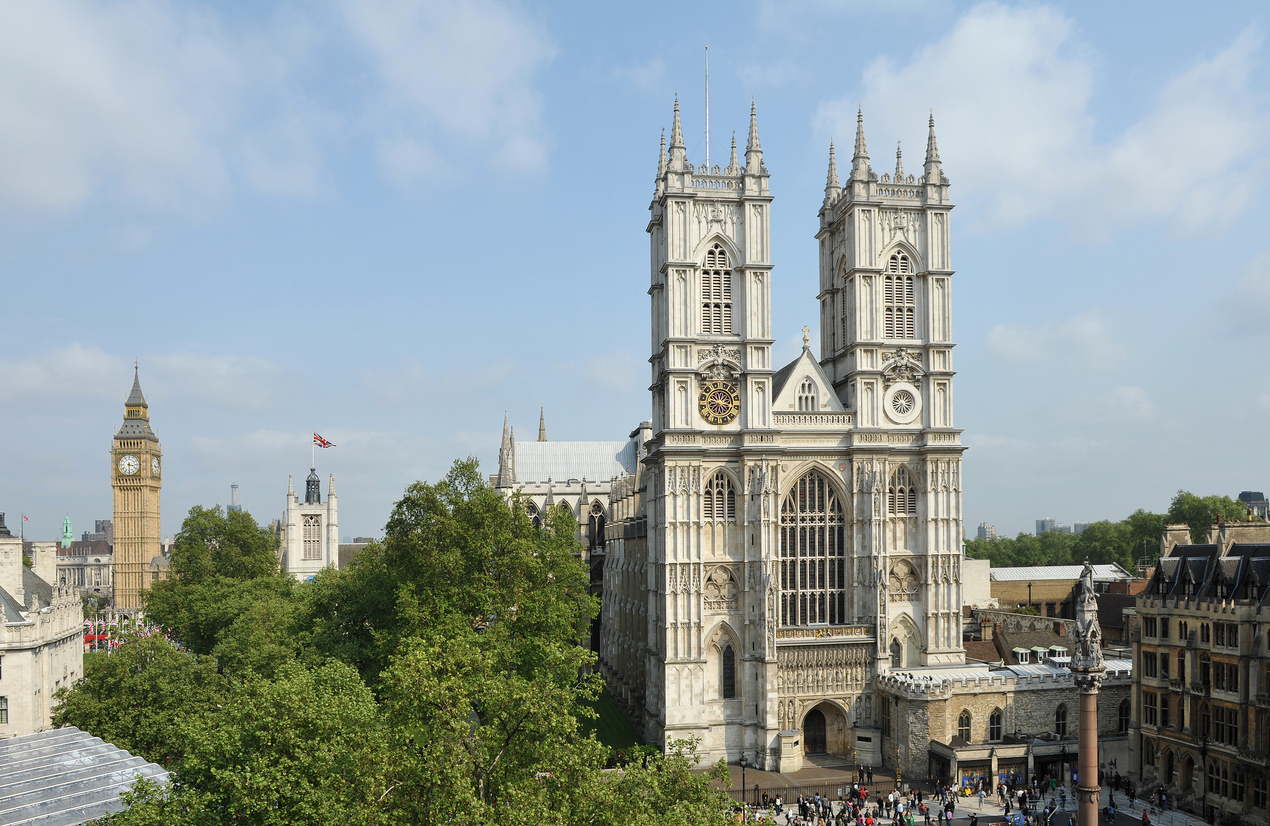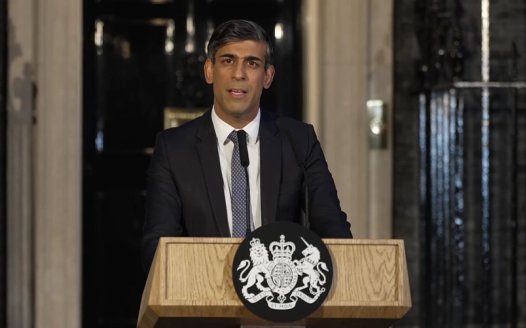Time for Church and state to part ways
Posted: Tue, 14th Nov 2023 by Stephen Evans
Separating church and state would signal a forward-looking Britain committed to equality, inclusivity and freedom of religion or belief. National Secular Society CEO Stephen Evans explains why the NSS is backing a bill to disestablish the Church of England.
One of the great ideas of the Enlightenment was the separation of religion and state. This core secularist principle is now a fundamental concept in many democratic societies. Yet here in England, the Church of England still cleaves to its status as the state church. It is high time this archaic arrangement was re-examined.
A new bill from Lib Dem peer Paul Scriven to disestablish the Church of England aims to do just that.
Established in the 16th century, the Church's privileged status derives from its creation during the reign of King Henry VIII after his split with the Pope. Although the Church's historical significance cannot be denied, the country, its inhabitants and its attitudes have changed drastically since then. Our constitutional settlement should reflect that change.
The Church of Ireland and the Church in Wales were both disestablished on the grounds that they served only a minority of the population. This is now true for the Church of England.
Attendance at Anglican churches has been in decline since the Edwardian era. Today, just 0.9% of the English population attend a CofE church on the average Sunday. Continued decline looks inevitable.
England today, along with the rest of the UK, is characterised by its increasing religious diversity and growing irreligiosity. The 2021 census, published last November, found 46.2% of the population described themselves as Christian. This means Christians now account for less than half of the population of England and Wales for the first time in census history.
Meanwhile, nonreligiosity and minority faiths continue to grow. Christianity may still be the most widely practised religion for now, but that may not continue to be the case. If we do not build a wall between Church and state, other religious groups will seek the privileges and status currently enjoyed by the Church of England. The growing fundamentalism within those religions, most notably Islam, should make moderates of all religious persuasions recognise the value in dismantling the entanglement of religion with the state. A quick glance around the globe reveals the dangers of religion infused politics. History has shown us time and again that when religion intertwines with politics, discrimination, conflict, and the erosion of civil liberties follow.
We need a new long term, sustainable settlement on the relationship between religion and the state based on the principles of secularism.
Secularism and the act of disestablishment shouldn't be regarded as an attack on Christianity, but rather a safeguard for freedom and fairness. The separation of religion and state would ensure a level playing field where no religious institution can enjoy special privileges or unique influence over the democratic process. Welded to a firm commitment to liberal democracy, free speech and freedom of religion or belief, a secular state would help foster a society where individuals of all faiths, including Christians, can freely exercise their beliefs without fear nor favour.
It would also liberate the Church from the state, giving it independence and the opportunity to pursue its mission without the expectation to be in step with attitudes of the nation is supposedly serves.
On issues such as same sex relationships, women's rights and assisted dying, the Church's views are not only at odds with public opinion, but also the views of its own members. Perhaps this is why a survey conducted by The Times this year found 53% of Church of England clerics think its established status should be reviewed – and that 12% of priests are fully fledged disestablishmentarians. Many within the Church recognise that disestablishment could encourage a more self-reliant and dynamic church that, without its prelates playing politicians, could better focus on its core mission.
Disestablishment would be a boon for democracy and freedom of religion and belief, too. It would end the automatic right of twenty-six Anglican clerics to seats in the House of Lords. Removing this undue religious influence from our political process would help to ensure government decisions are based on secular, rational, and democratic principles rather than religious dogma or favouritism. It would also remove the absurdity of our head of state having to be "in communion" with the Church, acting as its "supreme governor" and being oath-bound to uphold its doctrine and privileges. Such arrangements have no place in a modern democracy. Our nation is a diverse tapestry of people of different religions and beliefs, and all should be protected equally.
Whatever importance you attach to the UK's rich history and traditions, it is surely right that the constitution and institutions remain relevant. By dismantling entrenched religious privileges and hierarchies, the nation can better focus on the shared values that unite us, rather than beliefs that divide us. Ending religious privilege would pave the way for the fair and equal treatment of all. No longer would those who do not belong to the Church of England be less equal in the eyes of the state. Disestablishment would signal the secular nature of the state, creating a more cohesive society and fostering a stronger sense of shared citizenship.
The majoritarian argument for an established church has gone. The countless scandals and cover-ups of abuse, rampant in the Church, give the lie to any claims that it acts as the nation's moral compass. The argument from tradition isn't a valid argument for establishment; rather, it reveals the absence of one. Claims that it is too difficult to achieve suggest an alarming democratic deficit – that we people are powerless over our constitution. More reason to get on with reform.
As one of the world's oldest democracies, Britain must resist the temptation to rest on its laurels. Democratic renewal can guard against disillusionment, decay and a slide towards populist authoritarianism.
Disestablishment would signal a forward-looking Britain committed to equality, inclusivity, and liberal democratic principles. Principles which underpin Lord Scriven's bill, and will be emphasised as secularists make the case for the bill to become law. Let the debate begin.
Secular Head of State
Our head of state shouldn't have any constitutional entanglement with religion. Join our campaign for a secular head of state.








